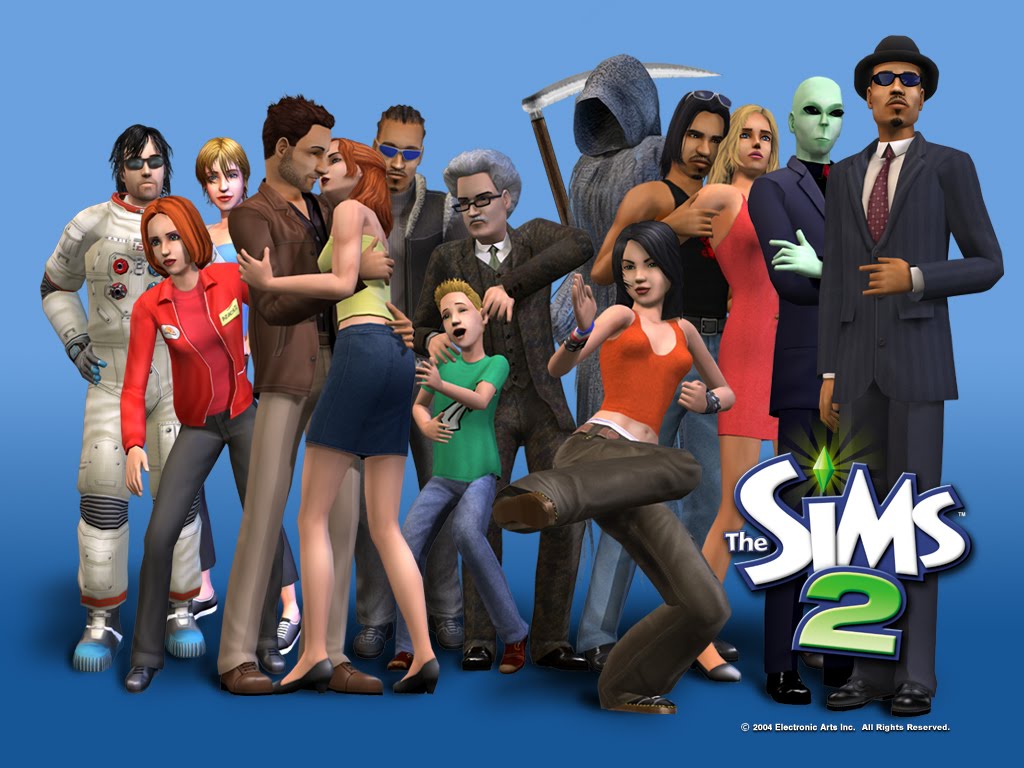ABOUT THE AUTHOR
Thaddeus Griebel
B.S. in psychology who plans to continue conducting computer game research within the field of psychology in a graduate university setting.
INTRODUCTION
Games give us a unique and empowering opportunity to become anyone who we aspire to be in a simulated environment. Self-portrayal in a simulated life can have many different forms from far-fetched fantasies to more realistic ones in life-like games. The research introduced in this article is relating to projecting personality and values in The Sims 2 (the newest version of The Sims at the time of the research).
The Sims is a computer game where players create and control their own virtual lives including their households, jobs, relationships, etc. The game is open-ended meaning there is no right way to play the game.

SUMMARY
The research was conducted in a university environment with 30 undergraduate students as participants. The main motivation for this research was to empirically study how people play The Sims 2 thus exploring the extent to which people project aspects of themselves into the game.
There were 2 hypotheses formed:
H1: Personality characteristics will relate to gameplay; for example, participants who score high on conscientiousness will organise their Sims’ time more efficiently, which will be reflected by the Sims’ job promotion level, and participants who score high on extraversion will make their Sims more socially oriented.
H2: Participants will pass their personal values to their Sims; for example, participants who place high value on wealth will create Sims who earn high incomes.
The course of this research had 2 phases.
The first one was a personality test which took part before the gameplay. The second one, as implied, was the actual gameplay followed by detailed questionnaire about it.
In order to examine personality characteristics, participants completed NEO-FFI1 which measures five dimensions of personality. Afterwards, they took a Value Survey examining 56 values and rating them on a 9-point scale.
Gameplay instructions were pretty simple. Play a game for 30 Sims’ days (approx. 10 real time hours) without using any cheats. Each of the participants could have only one household with one to four Sims.
As a result, there were found correlations between the personality traits, values and a gameplay.
H1 suggests that gameplay would be related to personality traits such as extraversion and conscientiousness. Even though the data did not support these 2 particular traits, they show significant correlations connected to other traits. E.g. highly neurotic participants had tendency to miss payments of their Sims’ bills, changed careers more often and enjoyed insulting other Sims; on the other hand, the ones who were open to new experiences tended to make their lives more excited, spent money impulsively and frequently engaged in sex.
When it comes to H2, the outcome was that participants who valued wealth were more likely to report that it was important for their Sims to be wealthy; however, their Sims were no more likely to have higher income than the Sims of the participants who did not valued wealth that high.
CONCLUSION
The study was first of its kind, and it tried to find and explore patterns between gameplay behaviours and personality and values by statistical analyses. Because of its exploratory nature, the analyses were not restricted to the hypotheses and also examined other characteristics of the participants such as gender, parents’ marital status and many others in relation to gameplay. As a result, many different correlations were found, e.g., younger participants were more likely to spend their Sims’ money impulsively.
If The Sims could be proven as a valid projective instrument, psychologists might use it as another type of projective test to understand people’s inner world2.
The study is available here.
1Neuroticism Extraversion Openness Five-Factor Inventory
2There are many forms of projective tests, such as the Rorschach Inkblot Test, the Draw-a-Person Test, Sentence-completion tests, the Thematic Apperception Test and doll play.
I’ve never think about projecting real-life values or personality to games but it’s true that when I’ve played Sims when I was very young I guess I constructed the game in the way of my ideal life back then so some values were projected. I think there should be more studies like this, it’s pretty interesting.
LikeLike
For me this is an interesting study, because I do play The Sims occassionaly and remember playing it as a child. Then I always wanted to have the biggest house and used chests to make a lot of money. Now I use cheats to buy the things I actually like and make my characters as much similar to me as possible.
LikeLike
This is an interesting topic! I have played The Sims a lot and I have never thought about how my personality was displayed in the game. I will definitely think about it in the future. I hope that there will be more research like that because the findings could be used in the psychology field as well.
LikeLike